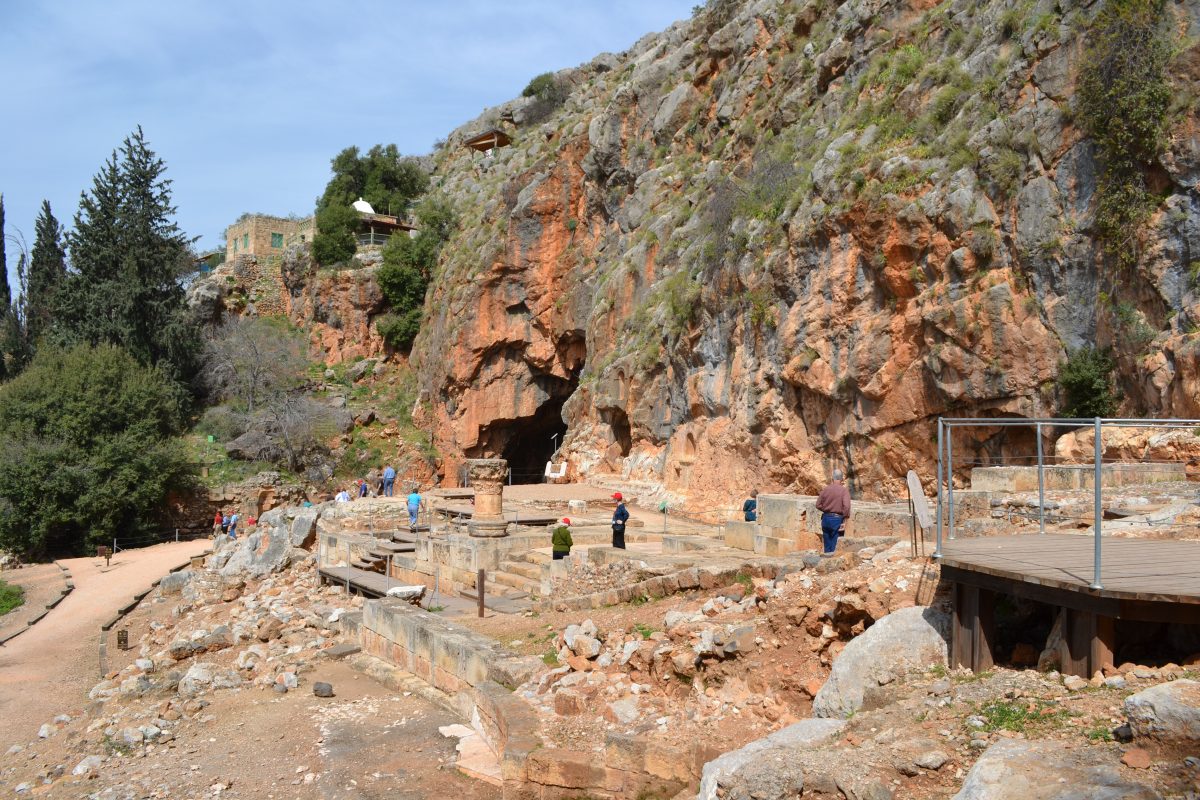Habakkuk 1:1-5; 2:4, 14, 20; 3:17-18; and Romans 8:28
Lately, we watch the news with a sense of morbid dread, waiting for another work of wickedness to destroy our comfortable complacency and erode the innate innocence of our children and grandchildren. I must admit God and I had a “come to Jesus” meeting over the past few days.
I shook my fist a little. Lashed out a bit. Questioned how he could sit by and watch events in Florida unfold without intervening. I finished my little fit and waited. Getting no immediate response, I huffed a bit more and went back to my worry and work.
It felt like an Old Testament week as I prepared for this devotional. I was in “an eye for an eye” mood. I scanned pages of scripture and read about Jeremiah complaining bitterly to God about the unfairness in the world around him. How evil men grow powerful and prosper. How righteous suffer. Jeremiah shook his fist at God.
Elijah hid in a cave. The prophet who had just won a major test of faith now cowered in a cave after being threatened by an angry and vengeful Jezebel. He complained balefully that he was the last godly man standing. That God had stepped aside, allowing him to be hounded and chased. Elijah shook his fist at God and wanted to die.
I read again about Job, God’s long-suffering servant. Plagued by calamities not of his making. Criticized by his friends. Struggling with the loss of those he held dear. Job lashed out critically to the Creator. “What does it profit us if we pray to him?” Job shook his fist at God.
I get it Jeremiah. I know where you’re coming from Elijah. I understand Job. That’s exactly how I feel.
Then, my eyes settled on Habakkuk. I didn’t intend to stop here. No one does a devotional on Habakkuk, right? But, this prophet joined me in shaking his fist at God so I kept reading.
In three short chapters, I discovered a God big enough to take my frustration and teach me about his presence and his purpose even in the middle of a perverse week.
Habakkuk spoke at a time when evil men ruled the day, punishing the righteous, inflicting violence upon them. “Why do you make me look at injustice?” lamented the prophet. “Why do you tolerate wrong? How long must I cry for help?”
My heart aches as Habakkuk’s aches. I see innocent children slaughtered again in a world run amuk. “Why, God, do we keep seeing this? Why do you put up with it? How long must we cry out for help?”
God’s answer to Habakkuk started a transformation in his outlook on life…an answer that lifted my own sagging spirit.
“Look at the nations and watch–and be utterly amazed. For I am going to do something in your days that you would not believe, even if you were told.” (Hab. 1:5)
All that questioning I did…this was the start of God’s rebuttal. “Look, Kirk. I didn’t cause the wickedness in the world. Human choice creates catastrophe and chaos. Your choice. Their choice. My job is to work through tragedy using people of faith to restore the broken. Redeem the lost. Rescue the troubled. I know you don’t understand. I could explain it to you, let you in on the secret, but you wouldn’t believe it.
“Know this. You are not alone. Those who are hurting most are not alone. I can carry you, carry them, through this. I will never abandon you. Despite your sorrow and struggles, I will never give up on my children. I am at work even if you can’t see it.”
Every one of us who love and trust God can look back through our lives and see the hand of God at work through the best and worst times of our lives. In those times, when we seemed to be abandoned and alone, we can now see the winding path he guided us down to emerge from the haze into a clearer understanding of his presence in our lives. I think about those times in my life and…God’s right. Had he told me how he planned to bring me through the struggle, I would not have believed it possible.
I kept reading through the book and found these declarations of eternal truth God spoke to the prophet.
“…the righteous will live by his faith…” (Hab. 2:4)
Habakkuk was blind to the work of God as he stood there and complained. God said to him, “Trust me. Have faith in my work even when you see no evidence of it.” Like an arrow, the words pierced the anxiety in my heart.
Living by faith is a hard pill to swallow when we’re sick to our stomachs over what we see happening around us. It sounds so cliché. Yet, faith is often the only answer we have…at least in the beginning. God would eventually use Habakkuk’s voice to bring about his intentional plan for redemption. When I have no answers, faith is enough. Perhaps my faith in him…my trust, my belief…can touch those troubled by tragedy.
Two other verses offered a message of hope and promise to the prophet. The strife caused by evil evaporates in the face of God’s presence. Though the bad seems to reign, its power will fade.
“For the earth will be filled with the knowledge of the glory of the Lord, as the waters cover the sea…The Lord is in his holy temple; let all the earth be silent before him.” (Hab. 2:14,20)
Our pain in the middle of tragedy cannot be denied. I cannot imagine the grief of parents and family in the aftermath of such insanity. While we seldom claim the promise of God’s eternal victory in the middle of tragedy, grief-inspired blindness doesn’t make it any less true. God will conquer. I take heart in understanding in my core the simple truth that pain and suffering around me is temporary and transient…especially when considered on an eternal scale.
God sits on his throne. Like any good ruler he knows his kingdom and his people. His anguish over our suffering is real. When we seek an audience with him to complain bitterly of that which hurts us, he listens. He is big enough to handle our confusion, our anger, our frustration, our disbelief. When our emotion is spent he reminds us that he walks among us through life’s mud and muck.
That’s why the hue and cry to put God back into our schools sits so uneasily in my bones. God never left our schools. There are people of faith teaching and serving in every public school in America. There are prayers lifted up daily on behalf of children and families. There are children and young people who lift up prayers every day in the halls and classrooms across America. Heartfelt prayers far more meaningful than a rote or recited prayer over the intercom.
Still his presence was not enough to prevent another senseless act. Why? Not because we “took God out of our schools.” Evil gets its way because we forced God out of our lives, not out of our schools. Stop making God political. Make him personal. Then, and only then, can he make an impact in and through us.
Here’s the truth I know. God is on his throne. God is present in the lives of all who believe…in school and out. Always has been. Always will be.
Without question, the senseless school shooting in Florida tested my faith this week. I struggle for words in the moment for those most touched by such devastating loss. I struggle for answers on how we might prevent such madness from ever happening again. Right now, I have no words. No answers. While I will keep searching, I have only my faith that “in all things God works for the good of those who love him who have been called according to his purpose.” (Rom. 8:28)
Make no mistake. God is at work today. I may not see it. I may not understand it, but he is at work.
The book of Habakkuk ends with the prophet’s faith renewed and restored. Despite not knowing the end game, Habakkuk rested in the strength of his faith. He accepted as I do that despite every intrusion of wickedness that creeps into our lives, whether by our own design or the horrific act of another, God will create the best plan and path through it.
“Though the fig tree does not bud and there are no grapes on the vines, though the olive crop fails and the fields produce no food, though there are no sheep in the pen and no cattle in the stalls, yet I will rejoice in the Lord, I will be joyful in God my Savior.” (Hab. 3:17-18)
Amen.

